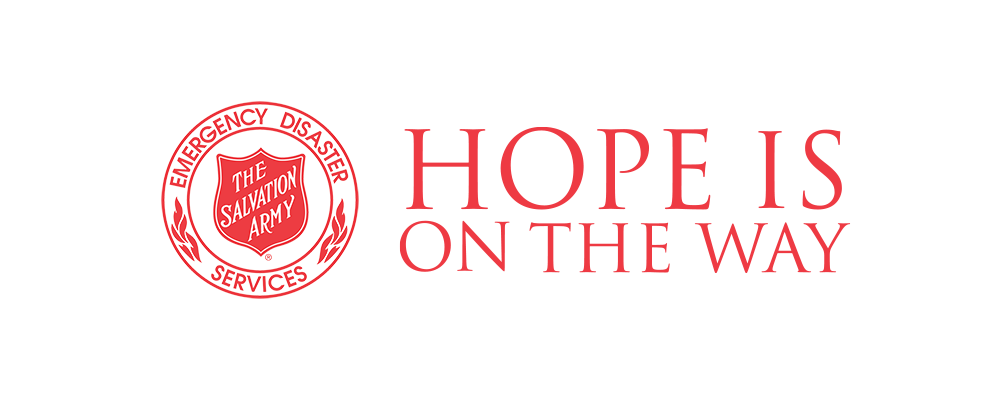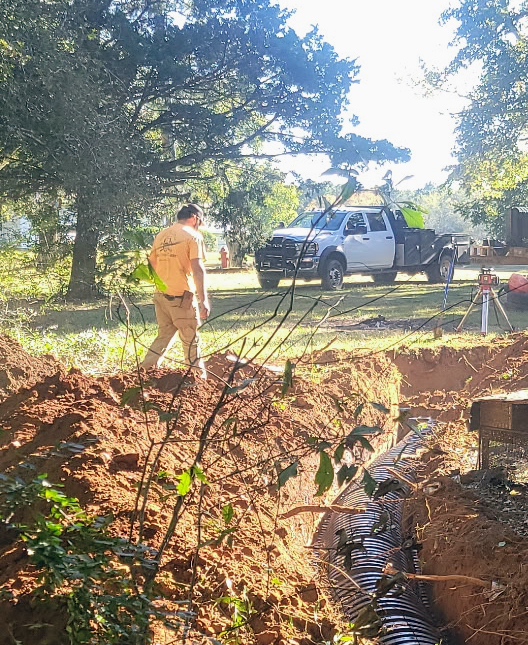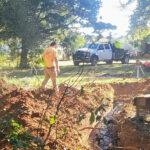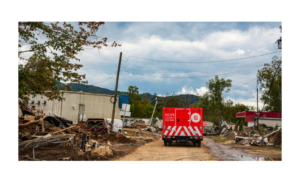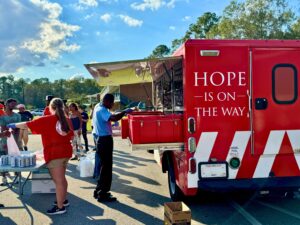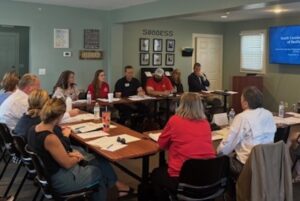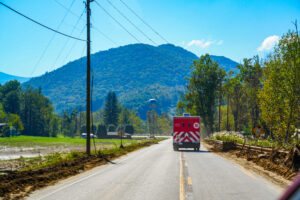Newberry County, South Carolina (November 24, 2025)-Imagine being unable to shower, wash dishes, or do laundry at home. Not just for a day, or a week, but an entire year.
For the Ariola family, this was an everyday reality after Hurricane Helene flooded their South Carolina home and destroyed their septic system. Without functioning plumbing, basic tasks became impossible. Home repairs stalled because contractors couldn’t diagnose or address other issues until the septic system was replaced.
“I couldn’t drain a tub, flush a toilet, use the washing machine, or dishwasher without causing everything to overflow,” Madeline Ariola explained. “We didn’t have the money to fix the problem, so we did our best to cope.”
Even the simplest daily routines became overwhelming challenges.
As hope faded, The Salvation Army’s Long-Term Recovery program stepped in. Working with the Lakelands Long-Term Recovery Group of disaster case managers and VOAD partners, the family’s unmet needs were assessed, and the septic system was identified as a priority for restoring their home life. The Salvation Army purchased a septic tank, addressing the root cause of the family’s hardship caused by Helene.
“We can actually live in our house again,” Madeline shared. “Day-to-day life is easier now that I can handle basic tasks at home instead of going elsewhere.”
Madeline’s words, ‘We can actually live in our house again,’ capture the heart of long-term recovery. It’s about more than fixing damage; it’s restoring dignity, daily routines, and a sense of home after a disaster.
The Ariola’s story is a reminder that Helene’s recovery work extends far beyond the initial crisis. Behind every repaired home is a family that can finally sleep soundly, cook meals together, and begin rebuilding their lives.
The Salvation Army’s Long-Term Recovery program remains committed to serving families affected by Helene, addressing those critical, often-overlooked needs that stand between catastrophe and true recovery. For the Ariola family, it was a septic tank; for others, the need might be different. But the goal is always the same: to help restore lives in the aftermath of disaster.

